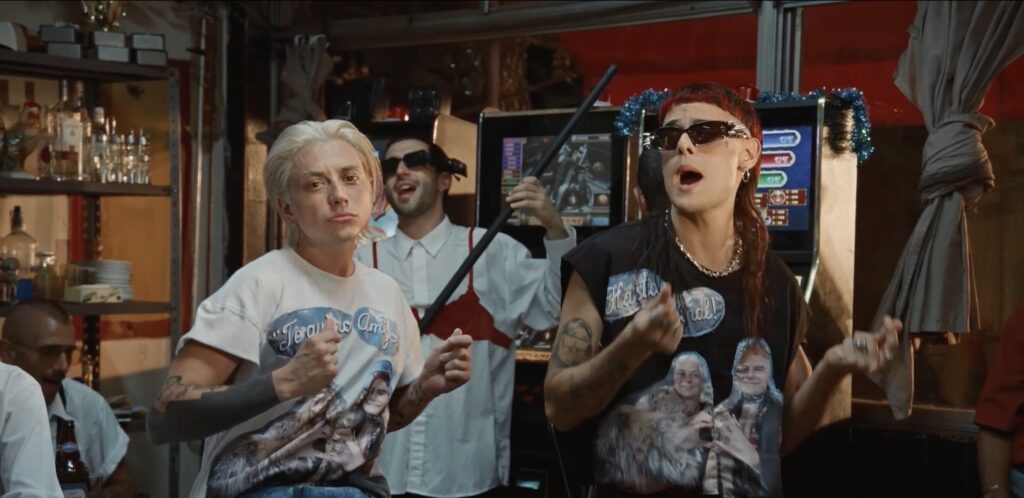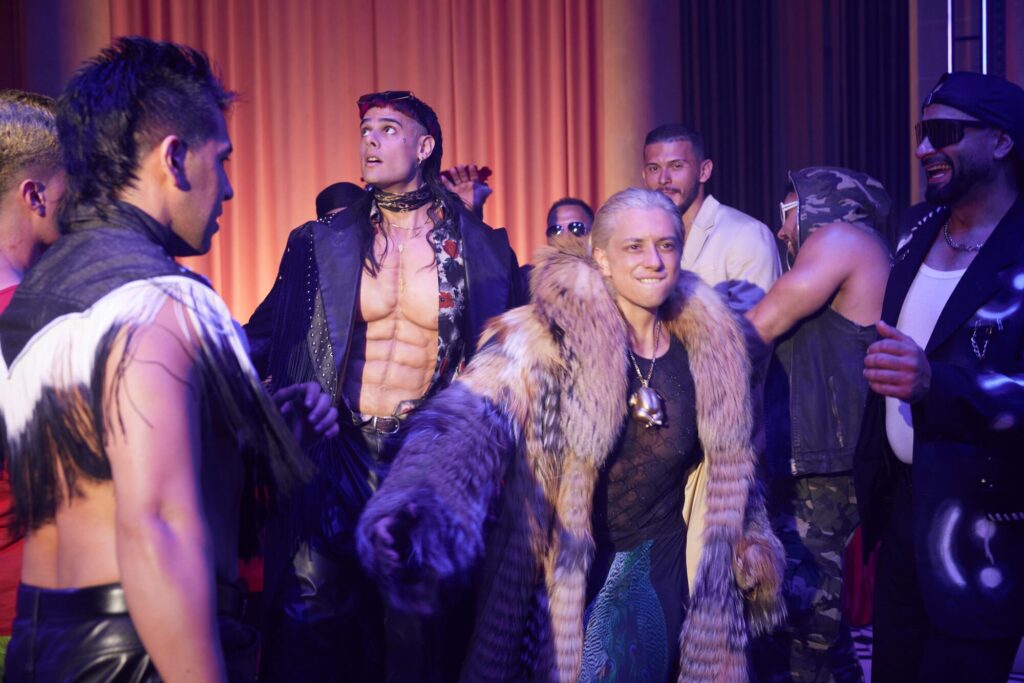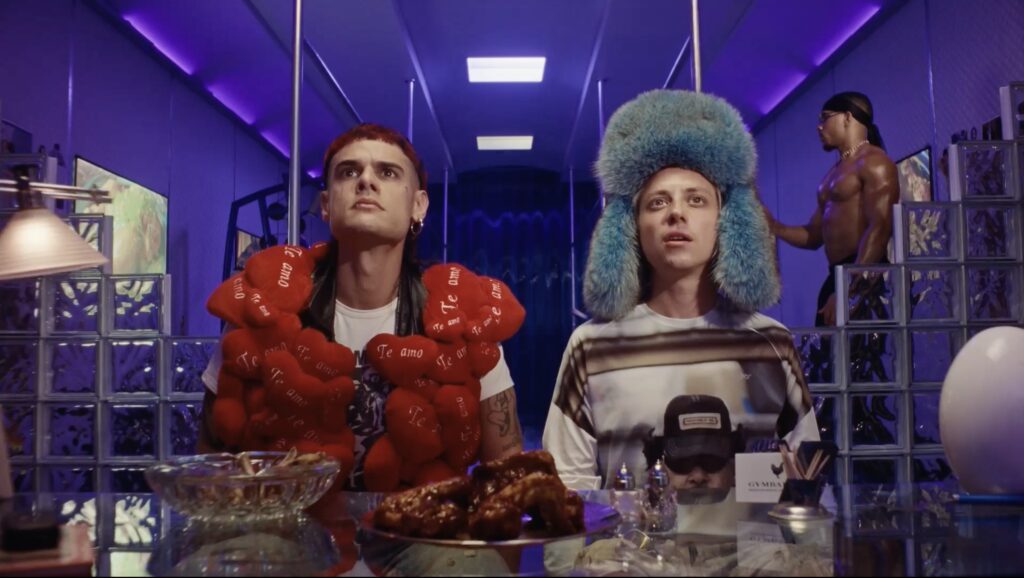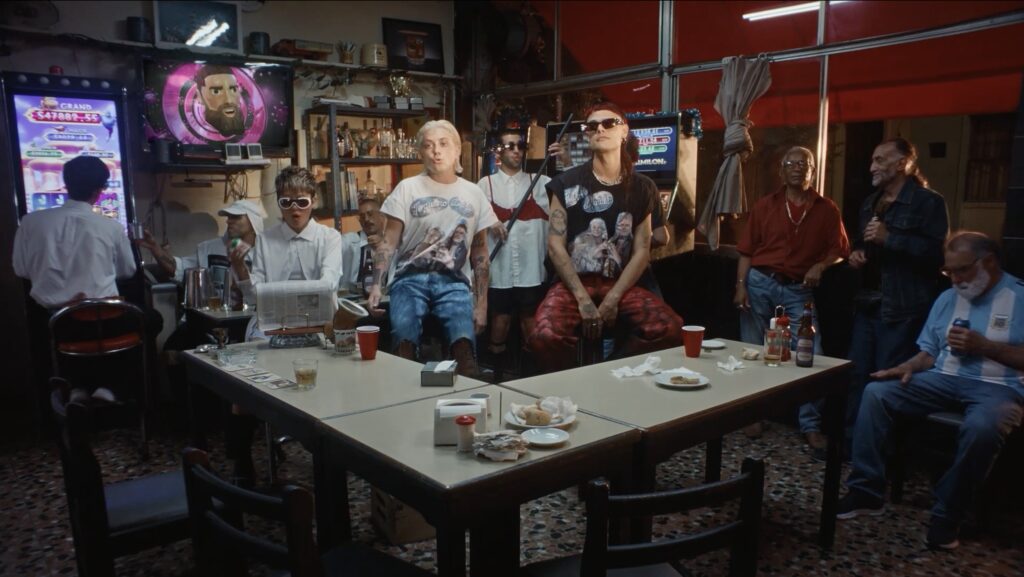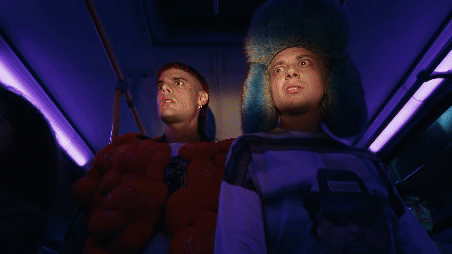Behind the Craft: Papota
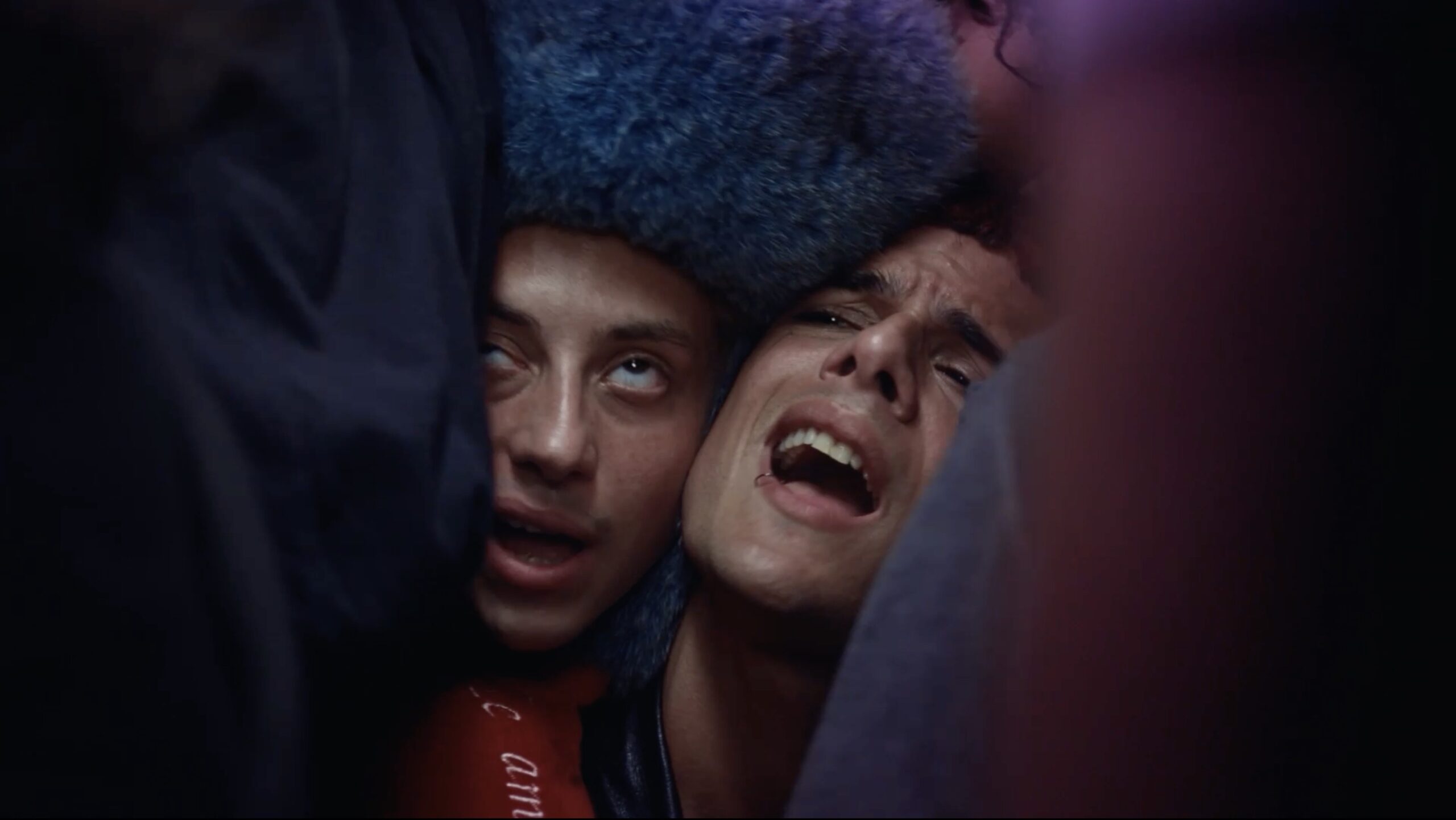
Papota, for Argentine multi-genre music duo CA7RIEL and Paco Amoroso, won the Grand Prix at this year’s CICLOPE Latino Awards, and saw director Martín Piroyansky named one of the Directors of the Year. We spoke to Martín and Executive Producer at Rebolucion, Chino Fernández, about the humor and craft behind the Award-winning visual album.
CA7RIEL and Paco Amoroso are renowned for their boundary-pushing, genre-blending style. How was the experience of working with them creatively, and what was the production process like behind a film that you, Martín, describe as “beautiful madness”?
Martín: They let me be very free. Of course everything had to be pre-approved, but they never imposed. I think we share a certain aesthetic, so it wasn’t too different for them.
Chino: The production was quite intense, we had to shoot a lot in just a few days. In total, we filmed four music videos and a short film, all within a four-day window. Shooting in Uruguay made a big difference in terms of logistics and staying on schedule. We spent two days in the studio, one day at a bar, and another at a hotel. Some parts we ended up resolving with archive footage, since new ideas kept coming up during the edit.
Martín, where did you draw inspiration from with Papota, and how does your background as an actor inform the way you direct talent onscreen – especially musical artists who may not be familiar with acting?
M: A lot of places! From David Lynch to Chaplin. We drew a lot from The Backstreet Boys and Aube Perrie too. Directing non-actors was something new for me. I’m used to directing actors all the time, but this experience was very interesting in that way. Non-actors bring something very special, you never know what they will do in the next take.
One of the reasons Papota stood out at CICLOPE Latino was its comedy. Has comedy moved permanently from the fringes to the mainstream of what brands and clients are after?
C: In Papota, they poke fun at themselves and the [music] industry — and that’s part of what makes it so refreshing. There’s definitely a comeback of comedy happening. For a while, with everything going on and the pressure to be politically correct, humor kind of took a back seat. That approach hit a bit of a crisis, and now, little by little, comedy is making its way back, especially in the advertising world.
Humor builds instant relatability. In a world where audiences are bombarded with content 24/7, brands need to break through fast, and laughter is one of the most universal ways to do that. Papota used absurdity and clever timing to not just sell something, but to make people feel something and that’s priceless.
How would you describe your personal style of comedy Martín?
M: I like the unexpected. Not knowing what’s going to happen next. Creating particular universes. Sometimes I like to create uncomfortable situations, sometimes I like them to be bizarre, eerie, or uncanny.
With social media having an effect on the way record labels value music videos, and more artists choosing to create visual albums, how has this changed the way directors approach the genre?
C: Lately, content production and advertising have been overlapping a lot. New artists today have a strong visual language, they often have creative directors who shape the whole concept behind their album or live show. It’s not just about the music anymore, it’s about the message they want to get across. The two worlds, content and advertising, are totally connected now.
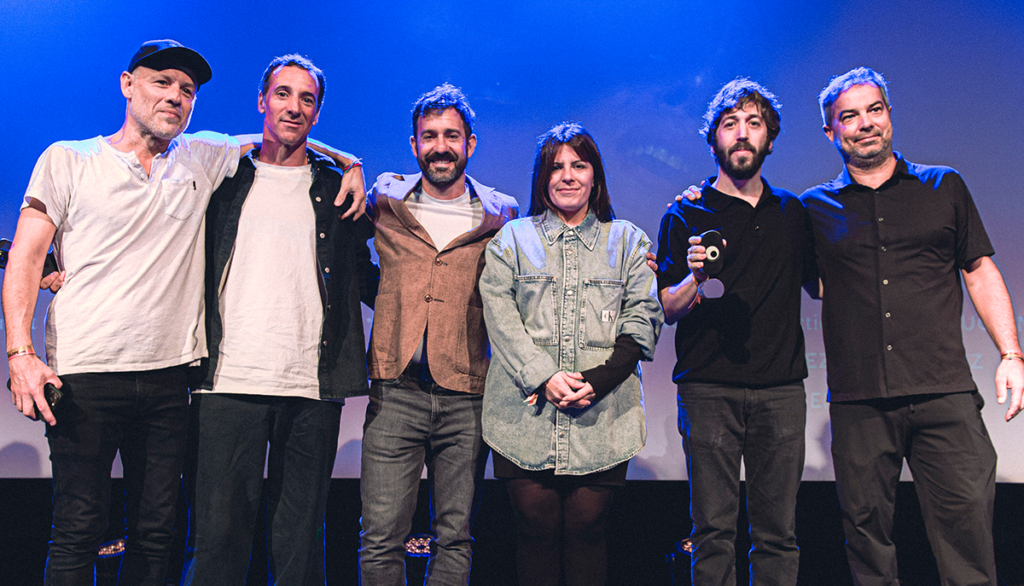
Martín, you bring your experience in long-form content to Rebolucion’s roster, at a time when clients are increasingly commissioning this sort of work. What are you hoping to create in this merging of the advertising and entertainment industries?
M: I like doing new things all the time. I try not to repeat myself, I get bored if I have to do the same things all the time. My main goal is to direct more movies and TV series, but they take a lot more time – I enjoy directing ads because of the adrenalised timelines. In a very short time I must create something new, and that’s very satisfying.
Among the challenges the production industry’s currently facing, what sort of creative opportunities does the changing landscape of branded content offer?
C: With branded content, you’re not starting from a traditional advertising brief — there’s much more room for storytelling. It allows for different kinds of narratives, more creative freedom, and new codes that are really engaging, especially because they present a fresh challenge.
We recently worked on a project for Dubai where we developed the script entirely in-house at About, and that was a really interesting process creatively. The key is to truly understand the brand and, from there, build something that feels authentic and compelling.
